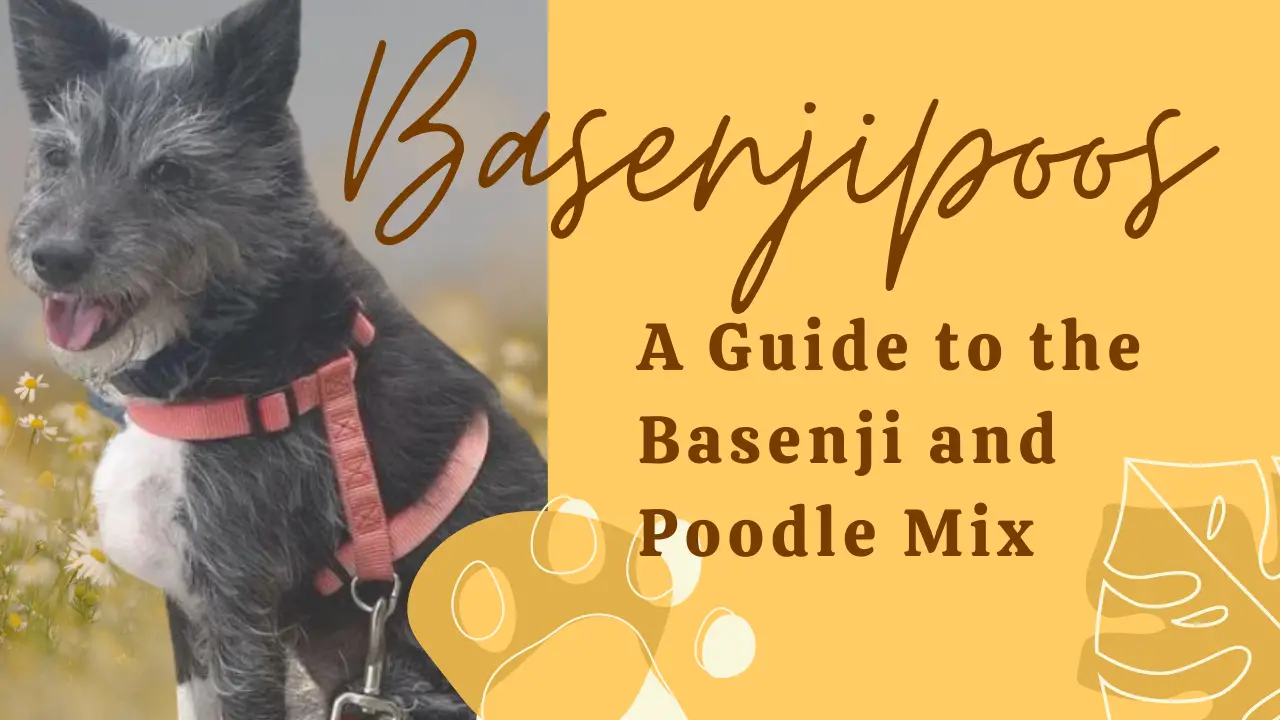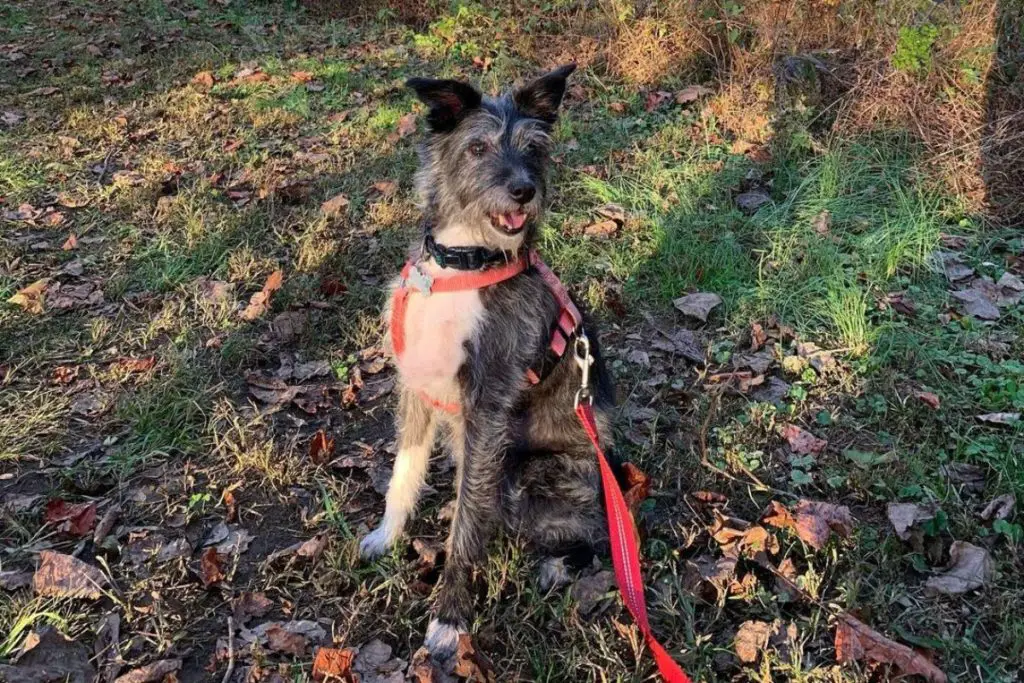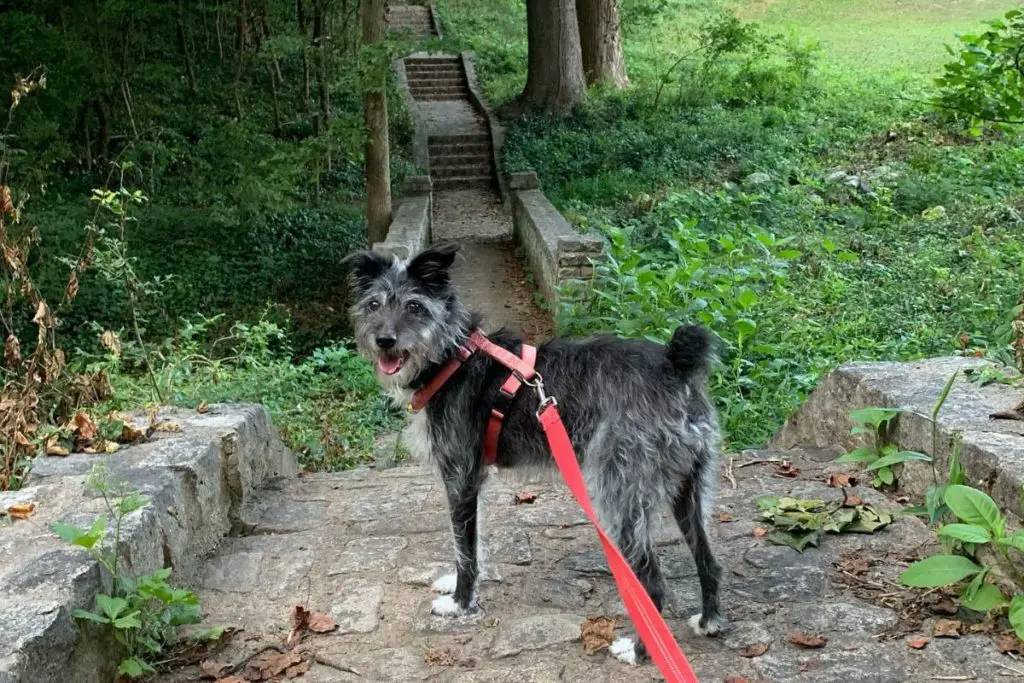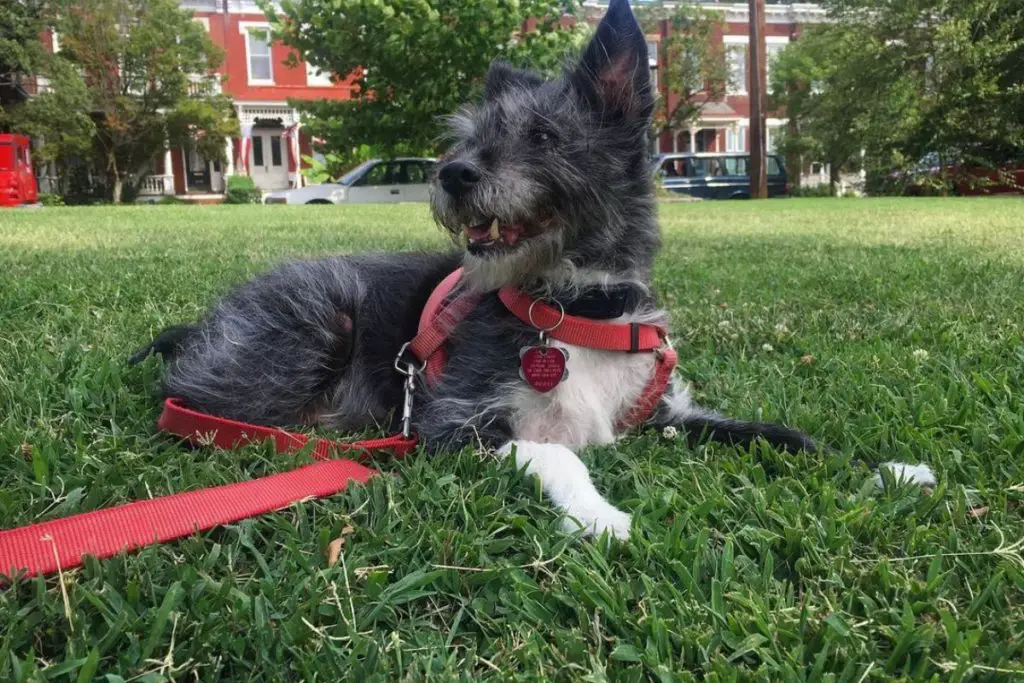One Doodle that you may not be that familiar with is the Basenjipoo. This is quite a new Doodle and one that deserves more attention. It combines two special breeds, the Basenji and the Poodle.

To understand this hybrid a little bit better, their parents must be highlighted. First of all, the Basenji is a unique breed in themselves. They are a small breed originating from the Congo and were formerly a hunting companion. At the same time, the Poodle was a working dog coming from Germany, mainly retrieving waterfowl.
Given their two parents’ original purposes, the Basenjipoo makes a unique hybrid.

Read our Smart Poodles - Smart Tricks eBook for only $2.99
Dive into a treasure trove of engaging tricks and tips designed specifically for your poodle!
Keep reading to know more about what makes this dog so unique.
What Will You Learn? 👇
Little-Known Facts About the Basenjipoo
To help influence your decision about the Basenjipoo further, here are some cool facts:
- Their Basenji parent is known as a barkless breed: Often, their parent, gets nicknamed “the African barkless dog.” Part of the reason is that they’re a breed that does not bark; instead, they make a sound more similar to a yodel.
- Mistaken for other dogs: Sometimes, the Basenjipoo can often be mistaken for another French dog breed called the Petit Basset Griffon Vendeen.
- They love to be around humans: This dog breed thrives off the company of other humans and does best when they have a companion.
What’s the Basenjipoo Price?
As the Basenji Poodle mix is quite a new breed, it can be challenging to find information about how much they cost. Another reason is that their parent, the Basenji, is quite rare too, and they’re expensive in themself, costing between $1,200 and $1,800. Because of this, you might want to conduct some research in your local area to see if you can find a reputable breeder.

Are they hypoallergenic?
It can be challenging to determine if a Basenjipoo is entirely hypoallergenic. Sometimes they can inherit their Poodle parent’s low shedding coat, and other times the short coat of a Basenji makes them shed a lot. To get a better idea, you should visit a breeder first.
Temperament & Intelligence
To truly understand what this Doodle could be like, you should look at its parents. Most of the time, this is a friendly Doodle that gets along well with others if socialized. Because both parents work and hunt dogs, they love to be around the water and have the most fun near a lake or an ocean.
They’re also a breed that can be pretty independent and enjoy alone time if required. But you should never plan on leaving them for too long, as they like to feel like they’re part of a pack.
Are Basenjipoos Good for Families?
The Basenjipoo is a fantastic Doodle if you’ve got a family. Their well natured, love to play, are affectionate, and are not aggressive at all. As long as you meet their exercise requirements and are socialized from an early age, they will do well with your home’s younger and older members.
Another great and similar doodle I’ve written about is the Bassetoodle, so make sure you check it out as well.

Does This Breed Get Along With Other Pets?
The Basenjipoo is also a dog that can get along well with other animals in your home if they’re socialized and gradually introduced to one another.
Food & Diet Requirements
The diet of a Basenjipoo is often unique based on their size, health problems, and lifestyle. Most of the time, they thrive off a raw food diet and one that’s grain-free. However, to get a better idea, you should consult with your local veterinarian, who will be able to advise you accordingly on what’s best to feed them.
Full-grown sizes
As the Basenji Poodle mix can have any type of Poodle parent, they can weigh up to 4-70lbs/2-32kg. Generally, they grow up to 18-24 inches/46-61cm.
Life expectancy
The life expectancy of a Basenjipoo can vary between 8-15 years if looked after well and fed a healthy diet.
Exercise
As they tend to have a hunting nature like their Poodle and Basenji parents, this is a dog that requires a fair bit of exercise. Therefore they must have regular daily exercise to exhaust their demanding energy levels.
On average, you should take them for at least 60-90 minutes of exercise daily. You might want to mix their exercise sessions up alongside walking by taking them for swims in the water, running, and through games.
Training
Compared to other Doodles, it may take a little bit of grit to train the Basenjipoo. They sometimes have a stubborn nature which requires more firm handling to train them. Therefore when training, you’ll want to be consistent and have a positive reinforcement approach from a young age.

Basenjipoo Grooming
Most of the time, the grooming requirements of a Basenjipoo shouldn’t be strenuous. They inherit the Basenji’s short hair. If they do, you will only need to brush them twice a week. You should still purchase a vacuum to help keep them clean. Try not to bathe them too frequently, as you could dry their fur and strip their skin of natural oils.
Health and Conditions
Any health problems a Basenjipoo gets are often inherited, they’re not familiar, but if they do get any, they may experience the following:
- Hip dysplasia
- Tracheal collapse
- Patellar luxation
- Von Willebrand’s disease
- Mitral Valve disease
- Corneal dystrophy
To remove the risk of any health problems or keep on top of the Basenji Poo’s health, you should take them to a vet every six months for a health check.
Conclusion
Overall, the Basenjipoo is quite a charming dog breed to own. However, because their Basenji parent is quite a rare dog breed, it can be challenging to determine this hybrid’s outright cost. Regarding their coat and personality, they’re also challenging to know because they can inherit a 50/50 split from either parent. But, on the contrary, they’re not an aggressive breed, and they love being around humans. Because of this, they’re a great dog to own if you have a family or other pets.
Would you bring a Bassenjipoo into your home? Reply with your answer below.
Marko is the founder and author at PoodleHQ, where he blends profound expertise with formal training in Animal Behavior and Canine Genetics. With multiple generations of poodles under his care, he’s a breed connoisseur, honored with the Canine Care Excellence Award and lauded by the International Pet Enthusiasts Association.

